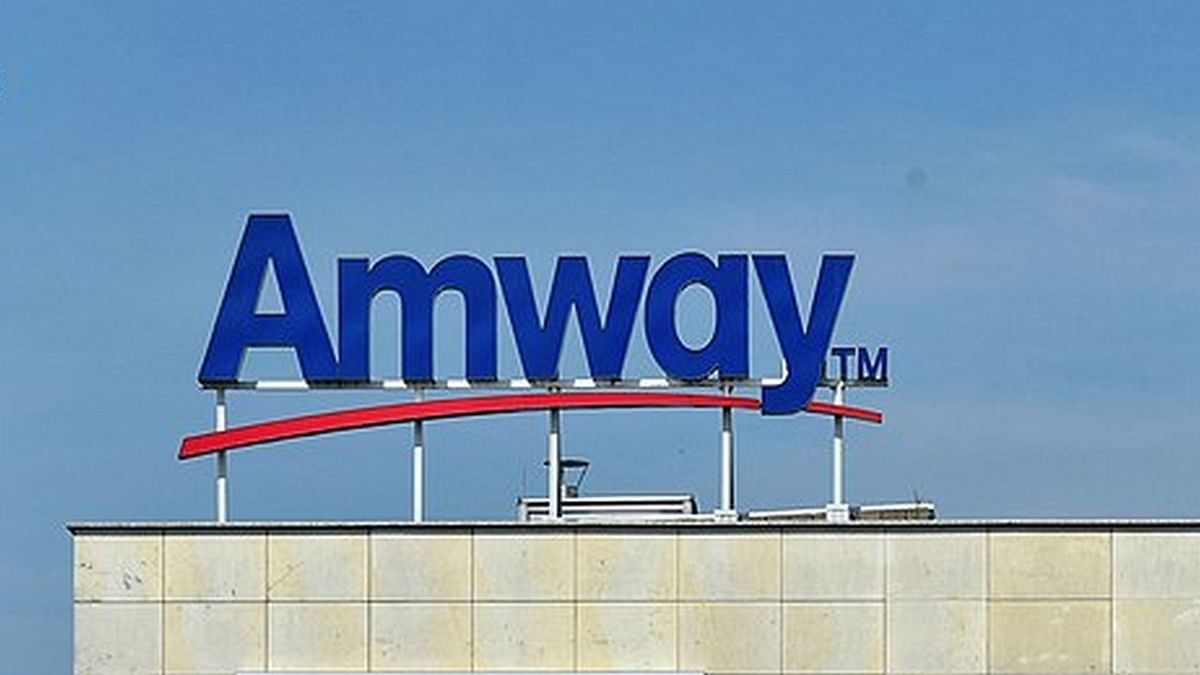
New Delhi: Amway India, which markets a range of products as well as “business opportunities” to customers, has been accused by the Enforcement Directorate (ED) of being a “multi-level marketing scam” whose main purpose is not to sell its “exorbitantly priced products” but to induce the public to sign up as members of its get-rich schemes.
The ED Monday attached assets of Amway India Enterprises Private Limited worth over Rs 757.77 crore, following a money laundering probe under the Prevention of Money Laundering Act (PMLA).
In its list of allegations against the company, the ED said that Amway is “running a pyramid fraud” in the guise of direct-selling multi-level marketing (MLM) networks.
Amway’s focus, the ED said, is not on its products but on “propagating how members can become rich” by signing up with the company. The products are merely used to “masquerade this MLM pyramid fraud as a direct selling company,” the central agency alleged.
Following these developments, Amway in a statement claimed that the ED’s investigation dates back to 2011, and that the company has been cooperating and sharing the required information ever since.
“We will continue to cooperate with the relevant government authorities and the law officials towards a fair, legal, and logical conclusion of the outstanding issues,” Amway India’s statement said.
ThePrint looks into how Amway operates in India and why the ED has accused it of being a “scam”.
Also Read: 5 years, 28 banks, Rs 23,000 cr debt — how ABG Shipyard pulled off ‘India’s biggest bank fraud’
‘Pyramid fraud’
The Amway properties attached by the ED include land and factory buildings in Tamil Nadu’s Dindigul district, machinery, vehicles, bank accounts, and fixed deposits, the agency said Monday.
The Rs 757.77 crore assets attached consists of Rs 411.83 crores’ worth of immovable and movable properties, and Rs 345.94 crore kept in 36 different bank accounts.
According to the ED, the company collected Rs 27,562 crore through its business operations from 2002-03 to 2021-22. Out of this amount, Amway paid Rs 7,588 crore to distributors and members in India and the United States during this period.
In its statement, Amway mentioned that it has “5.5 lakh direct sellers” in India and said that a “misleading impression” of the business model would affect their livelihood.
The ED, however, has said that members have already lost their “hard-earned money” by buying the company’s highly-priced products.
“It is observed that the prices of most of the products offered by the company are exorbitant as compared to the alternative popular products of reputed manufacturers available in the open market,” the ED said in its statement.
It further noted that new members were “not buying the products to use them, but to become rich” by becoming an “upline”— an MLM term used to describe someone who recruits other members.
In its website, Amway explains that it “rewards” members not just for selling products to customers but also for “helping others you sponsor to do the same”. This, in essence, means that existing distributors or “direct sellers” are given inducements, like commissions, to recruit new members.
The Enforcement Directorate, notably, stated that the commissions received by the upline members in Amway contributed to the high prices of the company’s goods.
In a pyramid scheme, the number of “investors” — or “members” as the case may be — in each layer of the pyramid increases. The Consumer Protection (Direct Selling) Rules, 2021 makes it illegal for direct-selling companies to promote a pyramid scheme or enrol any person to such a scheme in the garb of a direct-selling business.
Amway on its part has claimed that it has not violated the rules.
“The recent inclusion of Direct Selling under the Consumer Protection Act (Direct Selling) Rules, 2021, have brought in the much-needed legal and regulatory clarity for the industry, while again confirming Amway India’s continuous compliance with the spirit and letter of all laws and regulations in India,” the company said in its statement.
Earlier controversies
A US-based company, Amway sells a range of fast-moving consumer goods (FMCG), including cookware, nutritional supplements, and toiletries. The company began its India operations in 1995 and has courted controversy in the past in India, dating back to 2006, and abroad.
Amway “business owners” earn money in three ways, according to its website — direct selling of the products to customers, commission or bonuses based on sales volume, and finally, incentives on business growth.
“The business model often sees an overlap with pyramid schemes that compensate individuals for adding more people into the network without any realisation of sales,” a 2013 Mint report said.
In 2013, Amway India’s then CEO and MD William Scott Pinckney was arrested by the Kerala Police, along with vice-president and director Sanjay Malhotra and chief financial officer Anshu Budhiraja, for alleged over-pricing, duping members of their direct sales network, and fraud, in connection with a 2011 complaint.
In 2014, Pinckney was arrested by the Andhra Pradesh Police from the company’s Gurugram office and taken to Kurnool on fraud charges.
(Edited by Asavari Singh)
Also Read: Incredible story of how a faceless yogi ‘conned’ NSE CEO, got 9x salary, 3-day week, promotions
Source: The Print

